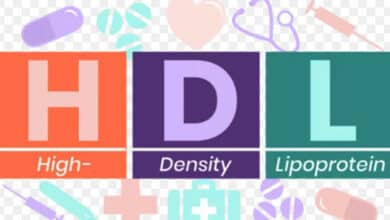Unlock Your Health Potential with Sodium Keto Today!

Are you looking for a way to enhance your ketogenic diet? Have you heard of sodium keto? Incorporating sodium keto into your diet can boost your energy levels, performance and weight loss journey. In this section, we’ll explore the benefits of adding sodium keto to your diet, while also discussing the importance of maintaining a low sodium intake.
Key Takeaways:
- Sodium keto can enhance energy levels, performance and weight loss journey
- Maintaining a low sodium intake is important while following a ketogenic diet
The Role of Sodium in a Ketogenic Diet
When it comes to the keto diet, sodium often gets a bad rap. Many people believe that a low sodium intake is necessary to achieve weight loss and overall health. However, this can be detrimental to those following a ketogenic diet. Sodium plays a vital role in maintaining electrolyte balance, supporting proper hydration, and preventing the dreaded keto flu.
So, how much sodium should you be consuming on the keto diet? The answer varies depending on the individual. However, a general guideline is to consume 3-5 grams of sodium per day. This can be achieved through consuming sodium-rich foods and adding a small amount of salt to your meals.
It is important to note that not all sodium is created equal. Processed and packaged foods are often high in sodium and should be avoided. Instead, focus on incorporating whole, nutrient-dense foods that are naturally high in sodium. These include meats, fish, vegetables, and dairy products.
The Importance of Sodium in Maintaining Electrolyte Balance
Sodium is an essential electrolyte that helps regulate fluid balance in the body. When you follow a ketogenic diet, your body rapidly depletes its glycogen stores, causing a loss of water weight and essential electrolytes. This can lead to imbalanced levels of electrolytes, resulting in symptoms such as headaches, fatigue, and muscle cramps.
By consuming adequate amounts of sodium, you can prevent these symptoms and maintain proper electrolyte balance. Sodium works in conjunction with other electrolytes, such as potassium and magnesium, to regulate fluid balance and support proper muscle and nerve function.
In conclusion, while it may seem counterintuitive, consuming adequate amounts of sodium is crucial to achieving optimal health and weight loss on the ketogenic diet. By focusing on nutrient-dense sources of sodium and monitoring your intake, you can ensure that you are achieving the proper electrolyte balance necessary to thrive on the keto diet.
Sodium Content in Keto Foods
Following a low-carb, high-fat diet like the ketogenic diet involves consuming a variety of healthy foods, including meats, dairy, nuts, and vegetables. However, it’s important to be mindful of the sodium content in these foods to stay within the recommended daily intake of 2,300 milligrams or less for most adults.
Here are some sodium-rich keto-friendly foods and their approximate sodium content per 100 grams:
| Food | Sodium content |
|---|---|
| Bacon | 1500 mg |
| Cheese | 500-600 mg |
| Salmon | 60-70 mg |
| Almonds | 1 mg |
| Spinach | 79 mg |
While it’s important to keep an eye on your daily intake of sodium, it’s also crucial to remember that sodium plays a significant role in maintaining healthy electrolyte levels, especially when following the ketogenic diet. Choosing nutrient-dense foods and monitoring your sodium intake can help you achieve the right balance for optimal health.
Sodium’s Impact on Weight Loss and Electrolyte Balance
Sodium plays a crucial role in weight loss and electrolyte balance on the keto diet. When following a low-carb, high-fat diet like keto, the body’s insulin levels decrease, causing the kidneys to excrete excess sodium. This can lead to sodium depletion and an electrolyte imbalance.
However, consuming too much sodium can also hinder weight loss progress by causing water retention and bloating. That’s why it’s important to monitor your sodium intake and find a healthy balance.
One study found that increasing sodium intake can actually boost the body’s fat burning potential by increasing metabolic rate and fat oxidation. This suggests that incorporating the right amount of sodium into your diet may enhance your weight loss journey on keto.
But how do you find the right balance? It’s recommended to aim for 3-5 grams of sodium per day while following a ketogenic diet. This can be achieved through incorporating sodium-rich foods like cured meats, cheeses, and broth, as well as adding a pinch of salt to your meals.
To maintain electrolyte balance, it’s also important to consume adequate amounts of potassium and magnesium, which can be found in foods like avocados, nuts, and leafy greens. Supplementing with an electrolyte drink or taking magnesium and potassium supplements may also be helpful.
Sodium and Hydration on Keto
Proper hydration is essential for any diet plan, and the ketogenic diet is no exception. When following a low-carb eating plan, it is crucial to maintain adequate hydration levels to avoid unpleasant side effects such as headaches, fatigue, and constipation.
Sodium plays a significant role in regulating hydration levels in the body, particularly when following a ketogenic diet. Sodium helps to maintain proper electrolyte balance, which is essential for optimal bodily function. When electrolytes are imbalanced, it can lead to dehydration, decreased performance, and even serious health issues.
One way to ensure adequate sodium intake on a keto diet is to consume electrolyte-rich beverages like sports drinks or coconut water. However, these options may also contain high levels of sugar or other unwanted additives, so it’s important to read labels carefully.
Adding a pinch of sea salt to your water or food is another easy way to maintain proper sodium and electrolyte levels. And, of course, drinking plenty of water throughout the day is key to staying hydrated.
It’s worth noting that consuming large amounts of sodium can have the opposite effect and lead to increased water retention. As with any dietary change, it’s crucial to monitor your sodium intake carefully and seek advice from a healthcare professional if necessary.
Conclusion
As we’ve explored in this article, incorporating sodium keto into your ketogenic diet can have a significant impact on your overall health and wellness. It’s essential to understand the role of sodium in maintaining electrolyte balance, supporting hydration, and preventing the keto flu.
However, it’s equally important to monitor your sodium intake and stay within recommended guidelines. Eating a variety of sodium-rich keto-friendly foods can contribute to your overall sodium intake, so it’s crucial to make informed choices and prioritize your health goals.
Stay Hydrated and Optimize Your Results
Hydration is crucial, especially when following a ketogenic diet. By incorporating electrolyte-rich beverages and prioritizing water intake, you can maintain proper hydration levels and support your overall health and well-being.
Sodium can be a powerful tool in achieving your weight loss goals on keto, but it’s crucial to maintain a healthy balance. By understanding the impact of sodium on your weight loss progress and electrolyte balance, you can optimize your results and unlock your health potential.
In conclusion, adding sodium keto to your ketogenic diet can have a positive impact on your overall health and well-being. With the right knowledge and framework, you can achieve your health and weight loss goals and create a sustainable lifestyle.
FAQ
Q: What is sodium keto?
A: Sodium keto refers to the incorporation of sodium into a ketogenic diet to enhance energy levels, performance, and weight loss.
Q: How does sodium contribute to a ketogenic diet?
A: Sodium helps maintain electrolyte balance, supports hydration, and prevents the keto flu, making it an essential component of the keto diet.
Q: Which foods in a ketogenic diet are high in sodium?
A: Some keto-friendly foods that are high in sodium include bacon, cheese, olives, pickles, and processed meats. It’s important to make informed choices and monitor your sodium intake.
Q: How does sodium impact weight loss and electrolyte balance on keto?
A: Sodium can influence water retention and weight loss progress. Maintaining a healthy balance is crucial for optimal results and maintaining electrolyte balance.
Q: What role does sodium play in hydration on keto?
A: Sodium is important for maintaining proper hydration levels, especially on a ketogenic diet. It supports overall health and well-being by retaining water and preventing dehydration.
Q: How can I incorporate sodium keto into my ketogenic diet?
A: You can incorporate sodium keto by making conscious choices of sodium-rich foods and monitoring your sodium intake while staying within recommended guidelines. It’s also essential to prioritize hydration.




